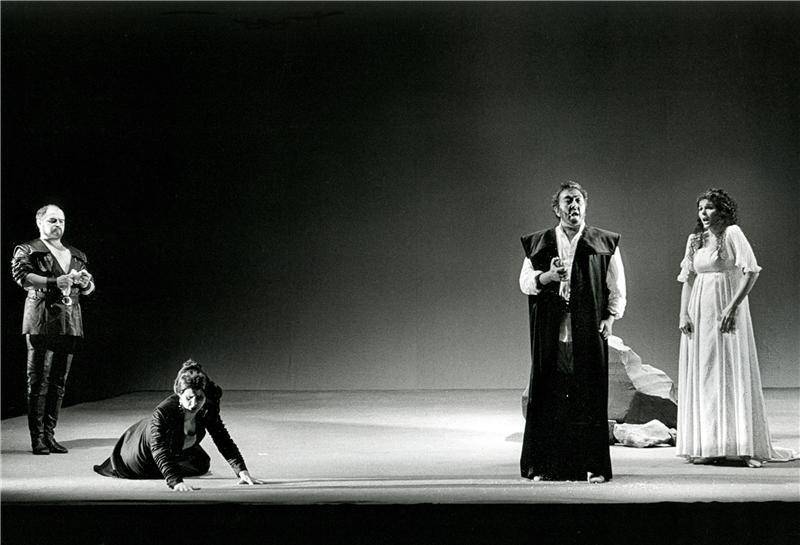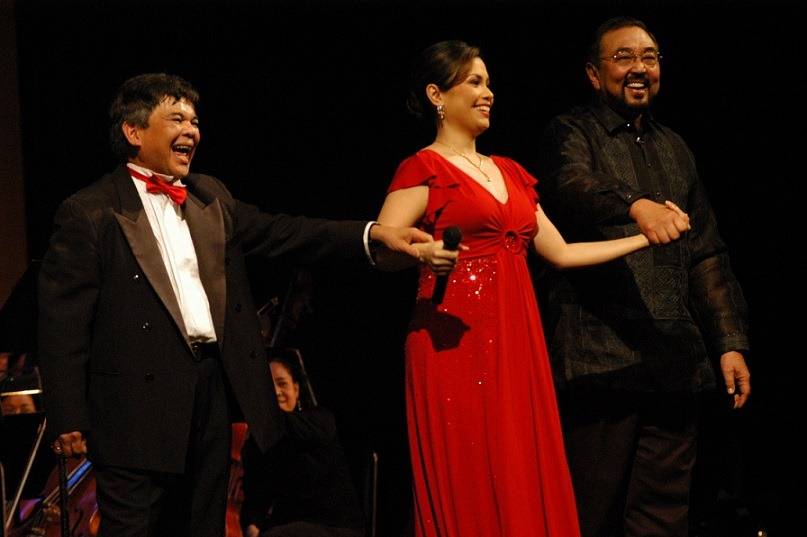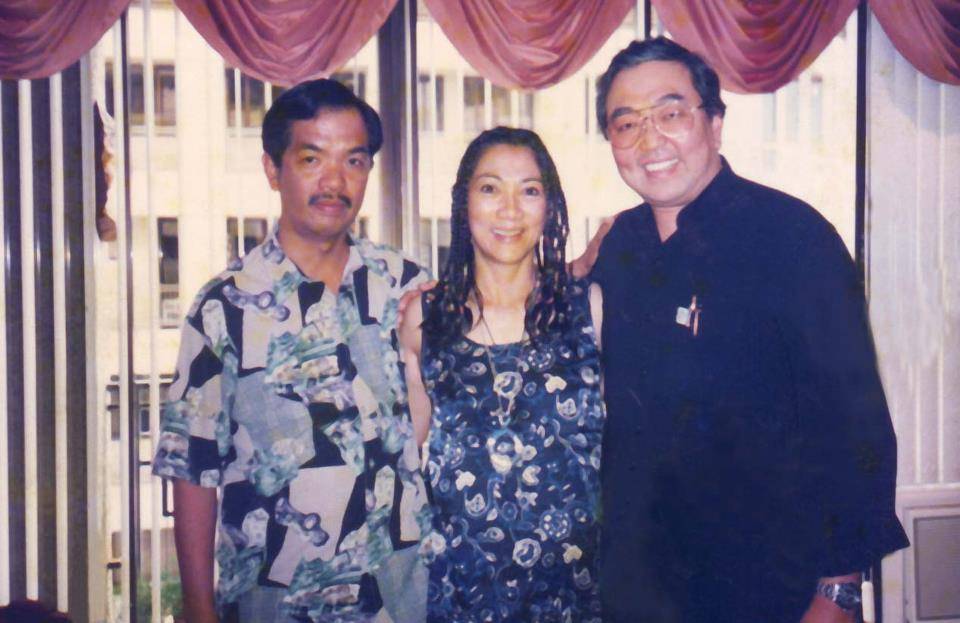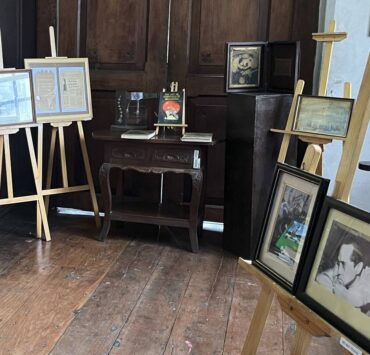Remembering the country’s first and last ‘Otello’

This month is the seventh death anniversary of Ilonggo tenor Otoniel Gonzaga. He died in a Vienna hospital on Jan. 14. 2018.
Tenor Arthur Espiritu, who received three standing ovations in his last concert at the University of the Philippines Visayas in Iloilo in 2022, said the Ilonggo tenor was someone he looked up to.
Lea Salonga, who sang with the tenor and the Philippine Philharmonic Orchestra (PPO) in 2006, echoed that sentiment. “Your glorious voice will be missed, Otoniel Gonzaga. Sing with the angels now,” she said.
For singer Dulce, “It was a big honor to share the stage with this great Filipino tenor.”
Gonzaga was last heard in the Philippines in 2006, when he came back for a visit and performed as a soloist of the PPO under Julian Quirit with guest artist Salonga, and with the Manila Philharmonic Orchestra with Dulce and soprano Camille Lopez Molina.
Gonzaga appeared in more than 45 opera houses in Germany, including Berlin, Cologne, Dusseldorf, Hamburg, Hanover, Munich, and Stuttgart.
Like Cecile Licad, the tenor received his training at the Curtis Institute of Music in Philadelphia, Pennsylvania, under English tenor Richard Lewis, American soprano Margaret Harshaw, and John Lester. While at Curtis, he won first prize in the Marian Anderson International Singing Competition in Philadelphia. Licad’s mentor, Rudolf Serkin, heard Gonzaga in a rehearsal of “Cosi fan tutte” and commented, “Most singers sing loudly, but I like the way Gonzaga sings because he sings musically.” Serkin’s admiration for Gonzaga later translated into an endorsement for him to be one of the soloists in Beethoven’s “Choral Fantasy,” with Eugene Ormandy conducting the Philadelphia Orchestra.
Stunned
One week before the Philippine debut of Pavarotti in 1994 in a concert, Gonzaga gave his countrymen a sample of what it took to be able to sing Act I of “Otello.” After the initial chorus opener, Gonzaga let out a piercing opening aria, “Esultate,” which stunned the audience.

A Frankfurt opera critic described the Filipino tenor as having a “powerful tenor voice with amazing lyrical intensity.” In Switzerland, he was proclaimed a “brilliant Faust … [with] a heroic and unusually timbered voice.”
When he sang for the first time at the Cultural Center of the Philippines (CCP) in 1988, a thoroughly impressed National Artist for Theater Rolando Tinio wrote: “The performances of lyric spinto tenor Otoniel Gonzaga revealed, among other things, that Filipinos can be world-class in the tenor category. It is not true, as he has shown, that Filipino males can only produce sweet but small voices.”
Tinio was right. Gonzaga, singing in Sweden, where the great tenors Nicolai Gedda and Jussi Björling come from, was declared by the Swedish press as a genuine Verdi tenor after singing the male lead in “La Traviata.”
Born in Iloilo City, Gonzaga left the country in 1963 when his parents decided to live in Philadelphia for good. His schooling at the Curtis Institute was unknown to Filipinos. He later got to sing plum roles in the school production of “Cosi fan tutte” and “La Bohème.” In one production of “Pagliacci” in the late ’60s, Gonzaga was in the chorus while the then unknown Placido Domingo was singing Canio.
In the mid-’80s, Gonzaga would again encounter Domingo who, along with his son, was in the audience when Gonzaga sang the tenor lead in the Hamburg production of “Rigoletto.”
As Gonzaga was removing his make-up in his dressing room, he heard a gentle rap on the door. Then a man’s voice said in Spanish, “Could a countryman of yours come in?”
When Gonzaga opened the door, there stood the majestic Domingo, who had mistaken him for a Mexican. “You are Mexican, aren’t you?” Domingo asked. Gonzaga said he was a Filipino.

Penultimate role
It was also Domingo’s agent who arranged for Gonzaga’s audition with the legendary conductor Herbert von Karajan, who found the Filipino good enough as a substitute for the tenor Luis Lima, who backed out from the Salzburg production of “Tosca” for health reasons.
From there, Gonzaga’s career took off with engagements at the Frankfurt Opera, including the national theater in Munich, and opera houses in Hamburg, Stuttgart, Dusseldorf, Hanover, Zurich, Glasgow, Barcelona, and Brussels. In 1987, Gonzaga made his debut at the New York City Opera as Foresto in Verdi’s least-known opera, “Attila.”
Gonzaga, Prague Opera’s first choice for “Otello,” said the role was the penultimate among tenor parts.
“For one to do justice to the part of Otello, one must be ready not just vocally but psychologically, because one has to move from one extreme emotion to the other. He was a Moor, and he was a mercenary who was paid to go to war by the Venetians who didn’t want to dirty their hands. On top of that, he was in love with the 16-year-old Desdemona, but he was black. So, he finds himself in a quandary, being black in a big white world. He ends up murdering his loved one. Musically, Otello is very rewarding, and it is also one of the heaviest roles. One has to dig deep into the psychological equivalent of the role of someone in love and very jealous and consumed by murderous rage. So you have a whole spectrum of emotions. They say that if the music doesn’t get you in this opera, the emotions will.”
Of his last Manila concert in 2006 with the Manila Philharmonic, journalist Jullie Yap Daza wrote, “I am tongue-tied, dumbstruck. I can only say that the Christmas concert that starred Otoniel Gonzaga with Camille Molina and Dulce should have been watched by 10,000 or 20,000 people.”
Gonzaga is survived by his wife Christina, son Rolando, and daughters Isabelle and Louise.
Otoniel Gonzaga is one of the tenors profiled in the author’s new book “Encounters in the Arts,” along with Pavarotti, Jose Carreras, and Arthur Espiritu. First printing is now sold out. Central Books is accepting orders for a second printing. Call tel. 0906-5104270 or email artsnewsservice@gmail.com.

















